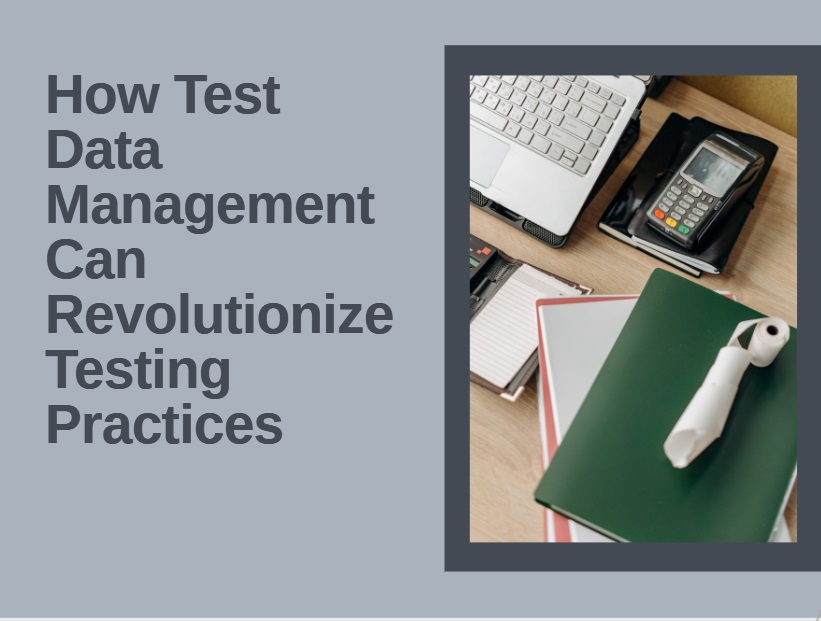How Test Data Management Can Revolutionize Testing Practices
In the rapidly evolving landscape of
software development and quality assurance, ensuring the effectiveness of
testing processes is paramount. One crucial aspect that often goes unnoticed
is test data
management (TDM). Test data, the lifeblood of software
testing, holds the potential to drive the success of testing initiatives. In
this blog post, we will delve deep into the realm of test data management,
exploring its numerous benefits and how it can revolutionize your testing
practices.
How Test Data Management Can Revolutionize Testing Practices
- Enhanced Test Coverage: Test data management empowers testing teams by providing a diverse and comprehensive range of test scenarios. By meticulously curating a rich dataset, TDM enables thorough testing of various combinations, conditions, and edge cases. This, in turn, leads to increased test coverage, ensuring that your software is subjected to a wide range of simulated real-world scenarios.
- Data Privacy and Security: With the rising concerns
over data privacy and compliance regulations, effective test data
management becomes crucial. TDM enables the masking and anonymization of
sensitive data, reducing the risk of data breaches and ensuring compliance
with privacy regulations. By obfuscating personally identifiable
information (PII) and other confidential data, testing teams can
confidently perform their tasks without compromising data integrity.
- Improved Test Efficiency: Test data management
eliminates the bottlenecks and delays caused by the unavailability of
relevant test data. By centralizing and automating the provisioning of
test data, TDM minimizes the time and effort spent on data preparation. This
allows testers to focus on actual testing activities, resulting in
improved productivity and accelerated time-to-market for software
releases.
- Realistic Testing
Environments:
TDM enables the creation of realistic testing environments by providing
representative datasets. By incorporating production-like data, including
variations and complexities, testing teams can ensure that their test
scenarios closely mimic real-world conditions. This facilitates the
identification of potential issues and improves the accuracy of test
results, leading to higher-quality software.
- Cost and Resource
Optimization:
Test data management optimizes
resource allocation by reducing the dependency on production data for
testing purposes. By leveraging synthetic or masked test data,
organizations can minimize the impact on production systems, decrease
infrastructure costs, and streamline the testing process. This also
enables parallel testing activities, allowing multiple testing teams to
work concurrently without data conflicts.
- Increased Test Reusability: Test data management facilitates
the creation of reusable test datasets. By organizing and cataloguing test
data assets, TDM enables testing teams to easily access and reuse existing
datasets across different testing cycles or projects. This not only saves
time but also promotes consistency in testing, ensuring that previous test
scenarios can be replicated accurately.
Conclusion:
Test data management holds immense
potential in revolutionizing software testing practices, enabling organizations
to unlock a host of benefits. From enhanced test coverage and improved test
efficiency to ensuring data privacy and security, TDM plays a pivotal role in
achieving high-quality software releases.
With Opkey, you can harness the power of TDM
and drive excellence in your testing initiatives. Opkey employs innovative test
mining technology to autonomously extract and format test data from clients'
environments. It also captures critical master data such as Charts of Accounts,
Customers, Employees, etc., and significantly reduces the data collection
efforts of QA teams, saving them up to 40% of their time. Opkey's testing automation software proves
particularly valuable during EBS to Cloud migrations and regression testing for
Oracle's quarterly updates, streamlining the process and delivering
considerable time and cost savings.












No comments
Note: Only a member of this blog may post a comment.